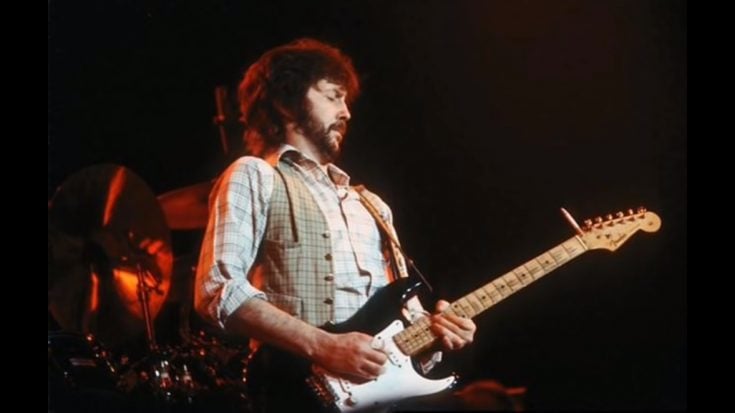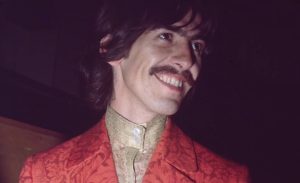The Guitar Gods of Classic Rock: Examining Legendary Guitarists

Eric Clapton live in 1978 - HotRockinJohnny / Youtube
When it comes to classic rock, there are certain guitarists who have achieved legendary status for their incredible talent, innovative techniques, and profound impact on the genre. These guitar gods have left an indelible mark on rock music, captivating audiences with their iconic riffs and unforgettable solos. In this article, we will delve into the world of these legendary guitarists and explore why they are hailed as true icons in the realm of classic rock.
#10 Duane Allman
Duane Allman, known for his exceptional slide guitar playing, left an indelible mark on the rock music landscape. As a founding member of the Allman Brothers Band, Allman’s contributions were instrumental in shaping the band’s distinctive Southern rock sound. His ability to infuse soulful blues and improvisation into his playing elevated the band’s live performances to transcendent heights. Tracks like “Statesboro Blues” and “Whipping Post” showcased Allman’s virtuosity, as he effortlessly weaved melodic lines with his slide guitar, creating a soul-stirring experience for listeners.
#9 Pete Townshend
Pete Townshend, the visionary guitarist of The Who, brought a unique blend of power, aggression, and theatricality to his playing. Known for his energetic stage presence and dynamic guitar style, Townshend pioneered the use of power chords, feedback, and destructive guitar smashing as integral elements of The Who’s live performances. His iconic windmill strumming technique and explosive energy on tracks like “My Generation” and “Won’t Get Fooled Again” captivated audiences and became defining moments in the history of rock music. Townshend’s innovative songwriting, which often explored themes of rebellion and introspection, influenced generations of guitarists and shaped the sound of hard rock and punk rock.
#8 Chuck Berry
Chuck Berry, hailed as the “Father of Rock and Roll,” was a trailblazer whose guitar playing and songwriting helped define the genre. Berry’s infectious blend of blues, country, and R&B created an unmistakable sound characterized by catchy riffs, energetic rhythms, and clever storytelling. His innovative guitar solos, exemplified in songs like “Johnny B. Goode” and “Maybellene,” combined melodic phrasing with dazzling technique, inspiring countless guitarists to emulate his distinctive style. Berry’s influence extends far beyond his era, as his pioneering contributions laid the foundation for rock music and continue to resonate with musicians and fans to this day.
#7 Eddie Van Halen
Eddie Van Halen revolutionized rock guitar with his groundbreaking techniques, unparalleled skill, and unmatched creativity. With his band Van Halen, he pushed the boundaries of what could be achieved on the instrument. Van Halen’s innovative use of finger-tapping, explosive solos, and blistering speed became his trademarks. Songs like “Eruption” showcased his technical mastery, while tracks like “Hot for Teacher” demonstrated his ability to blend virtuosity with infectious grooves. Van Halen’s guitar playing was a perfect balance of technique, melody, and showmanship, elevating him to the status of a true guitar legend.
#6 B.B. King
B.B. King’s influence as a blues guitarist is immeasurable, earning him the nickname “The King of the Blues.” Known for his soulful vibrato, expressive bends, and economical phrasing, King’s playing transcended the boundaries of the guitar, evoking deep emotions in his listeners. His signature guitar, a Gibson ES-335 named “Lucille,” became synonymous with his style. King’s ability to extract every ounce of feeling from each note, as heard in tracks like “The Thrill Is Gone” and “Lucille,” showcased his mastery of tone and his extraordinary ability to convey heartache and longing through his instrument. His impact on the blues genre and his influence on subsequent generations of guitarists cannot be overstated.
#5 Jeff Beck
Jeff Beck, often regarded as one of the most innovative and versatile guitarists in rock history, continually pushed the boundaries of what could be achieved on the instrument. Renowned for his experimental approach, Beck seamlessly blended rock, blues, jazz, and fusion into a unique sonic tapestry. His inventive use of distortion, feedback, and unconventional techniques created a signature sound that was both adventurous and expressive. Beck’s ability to evoke a wide range of emotions through his playing was exemplified in mesmerizing tracks like “Cause We’ve Ended as Lovers” and “Freeway Jam.” His guitar mastery, combined with his adventurous spirit, has solidified his position as a true pioneer in the world of guitar playing.
#4 Keith Richards
Keith Richards, the rhythmic force behind The Rolling Stones, is revered for his raw, gritty guitar style and his timeless songwriting contributions. As the band’s primary songwriter, Richards crafted iconic guitar riffs that have become ingrained in the fabric of rock music. His instinctive sense of rhythm, coupled with his ability to create memorable hooks, gave The Rolling Stones’ songs an irresistible groove and swagger. Tracks like “Brown Sugar” and “Start Me Up” bear witness to Richards’ talent for crafting timeless guitar-driven rock anthems. His partnership with Mick Jagger and his distinctive guitar work have helped define the sound of rock ‘n’ roll and inspired generations of guitarists worldwide.
#3 Jimmy Page
Jimmy Page, the legendary guitarist and producer of Led Zeppelin, is widely regarded as one of the most influential and innovative guitarists in rock history. Page’s guitar wizardry spanned a wide spectrum, from blistering blues-infused solos to intricate acoustic arrangements. His ability to layer multiple guitar tracks and explore diverse musical styles set Led Zeppelin apart. Page’s creative and evocative guitar work, exemplified in songs like “Whole Lotta Love” and “Stairway to Heaven,” showcased his technical proficiency, musicality, and willingness to experiment. His use of heavy distortion, haunting melodies, and Eastern influences demonstrated his artistic vision and left an indelible mark on the rock music landscape.
#2 Eric Clapton
Eric Clapton’s impact on guitar playing cannot be overstated. Revered for his soulful and blues-inspired style, Clapton’s melodic phrasing and emotionally charged solos have captivated audiences for decades. His ability to convey deep emotions through his guitar, coupled with his impeccable technique, solidified his reputation as one of the greatest guitarists of all time. Clapton’s contributions to iconic tracks like “Layla” and “Crossroads” showcased his ability to blend blues, rock, and pop sensibilities into timeless masterpieces. His influence extends beyond his own body of work, as his collaborations with various artists and his role in seminal bands like Cream and Derek and the Dominos continue to inspire and shape the landscape of rock and blues guitar playing.
#1 Jimi Hendrix
Jimi Hendrix, often referred to as the greatest guitarist in rock history, redefined the possibilities of the instrument with his revolutionary approach to music. Hendrix’s innovative use of feedback, distortion, and effects, combined with his virtuosic technique and boundless creativity, propelled him to legendary status. His iconic performances at Woodstock and Monterey Pop Festival showcased his ability to extract otherworldly sounds from his guitar, captivating audiences and inspiring generations of guitarists. Tracks like “Purple Haze” and “Voodoo Child (Slight Return)” demonstrated Hendrix’s ability to blend blues, rock, and psychedelia into a transcendent musical experience. His musical legacy, marked by his incredible technique, genre-bending compositions, and groundbreaking sound, remains unparalleled, making him an eternal symbol of guitar greatness.











